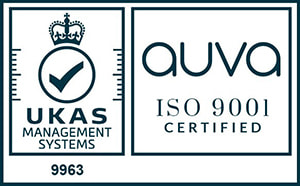
Climate change: we can’t blame Brexit for everything
H&V manufacturers are always developing products and systems that have lower harmful emissions, but with air pollution contributing to both short term and long term health problems, we need to go further, says Terri Taylor, Marketing Executive, Intergas Boilers.
As parents we see it as our parental duty to set good examples for our children to follow; we want them to know right from wrong, to be independent, to have a fully functioning moral compass, to stand up for their beliefs and we want to protect them. But right now, it’s the other way around, and it’s all thanks to 15-year-old Greta Thunberg. In September 2018 Greta didn’t go to school and instead held a solo protest outside the Swedish parliament to draw attention to politicians’ lack of action on climate change and accusing them of not following the Paris Climate Agreement. Her words were heard by other schoolchildren and strikes spread to more and more European countries.
In the UK this February more than 10,000 schoolchildren and young people in at least 60 towns and cities from the Scottish Highlands to Cornwall joined the strike, defying threats of detention, to demonstrate their anger and frustration at the failure of politicians to tackle the escalating ecological crisis. Now, up to 70,000 schoolchildren each week hold protests in 270 towns and cities worldwide.
It’s true that the focus on energy efficiency has shifted; just eight years ago everyone was talking about the benefits of solar power, ground source heat pumps, biomass, but there were tariffs in place to make going green attractive. Now the focus is on anything but our climate well, it’s really only on Brexit, and Greta and her allies are trying to do something about that, and she’s right isn’t she? The evidence is right before our eyes or worse, in our lungs, literally. Just as the UK strikes were happening, we learned that 14% of harmful emissions in the UK come from our homes and the domestic gas boiler is the main culprit. According to the London Atmospheric Emissions Inventory (LAEI), emissions from domestic gas combustion has been identified as the second largest individual source of NOx pollution in London, after transport emissions, and is predicted to replace transport as the largest source of NOx by 2025. Replacing boilers with heat pumps or networks of hot water pipes, which has been recommended by the Committee on Climate Change, is not going to be fast or easy to adopt, but pioneering Dutch boiler manufacturer, Intergas, has a solution that is. The R&D team at its head office in Coevorden has created the lowest NOx boilers in the world, the Xtreme and the Xclusive, and both have NOx emission levels as low as 17.06mg/kWh. The Xtreme also has a built-in passive flue gas heat recovery unit to further reduce emissions of CO2.
NOx or oxides of nitrogen are atmospheric pollutants created when fossil fuels are burned. They can react in sunlight to produce a hazy, harmful smog and, when dissolved in water in the clouds, form an acidic solution that contributes to acid rain. Breathing air with a high concentration of NOx can irritate the airways and longer exposures to elevated concentrations may contribute to the development of asthma and potentially increase susceptibility to respiratory infections. People with asthma, as well as children and the elderly, are at the greatest risk.
In September 2018 a mandatory maximum NOx emissions level of 56mg/kWh for gas and LPG boilers and 120 mg/kWh for oil-fired boilers was imposed, but for some local authorities it’s not low enough and they are demanding ultra-low NOx boilers with a maximum emissions level of 30mg/kWh. Speaking about the importance of low-NOx boilers, Stephen Zouch, Managing Director, Intergas, said: “As a country we’ve been reducing polluting emissions every year, and the heating and ventilation industry plays its part in doing this. There are already boilers with NOx emissions of under 30mg/kWh, but at Intergas we are taking the lead on this increasingly important issue and our new low-NOx gas boilers only emit between 17.06-20.33 mg/kWh.
“For a number of years now transport has been the focal point for emissions reduction and now there’s an ever-growing number of hybrid cars on our roads, but until the charging infrastructure and range are improved, going all-electric is not yet a viable option. There are no infrastructure issues with boilers, and home owners, landlords and housing associations can act now to start reducing NOx pollution.”
Reducing air pollution is important and urgent and it’s down to all of us to get involved, to collaborate. This is one problem we can’t pin on Brexit.






